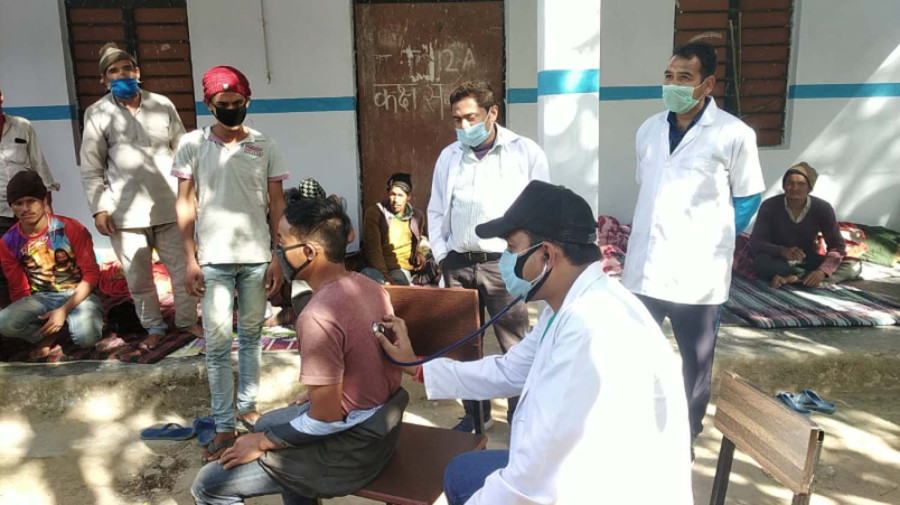For many Nepali migrant workers, healthcare remains an unaffordable luxury in foreign lands. Anish, a 25-year-old construction worker in Kuwait, has been battling insomnia and loss of appetite for weeks. Stuck between an exhausting job and his family’s persistent financial struggles, he neither wants to stay nor return home. Through Nepal’s telemedicine service, doctors at Bir Hospital provided counseling and medication, helping him cope.
However, Anish’s case is not unique. Thousands of Nepali migrants suffer from health problems, but only a fraction access medical care in their host countries. Bir Hospital’s telemedicine service, launched two years ago, receives around 30 to 35 calls daily from struggling workers. Many suffer from mental health issues, but barriers like language difficulties, employer restrictions, and high medical costs prevent them from seeking treatment.
Migrant workers in various countries have reported diverse health concerns, from anxiety and insomnia to serious physical conditions. Many hesitate to disclose health issues for fear of losing their jobs or being sent home. Pre-employment medical check-ups focus on physical fitness but ignore mental health, leaving many vulnerable. Additionally, undocumented workers face even greater challenges, often avoiding treatment due to the risk of deportation or unaffordable costs.
Dr. Basudev Karki from Nepal Mental Hospital highlights the dire consequences of these gaps in healthcare, with some workers losing their jobs and financial stability due to untreated conditions. Given that migrant workers’ remittances are crucial to Nepal’s economy, experts stress the need for better healthcare support. Strengthening telemedicine services and addressing systemic barriers could significantly improve the well-being of Nepali workers abroad, benefiting not just individuals but entire communities.

